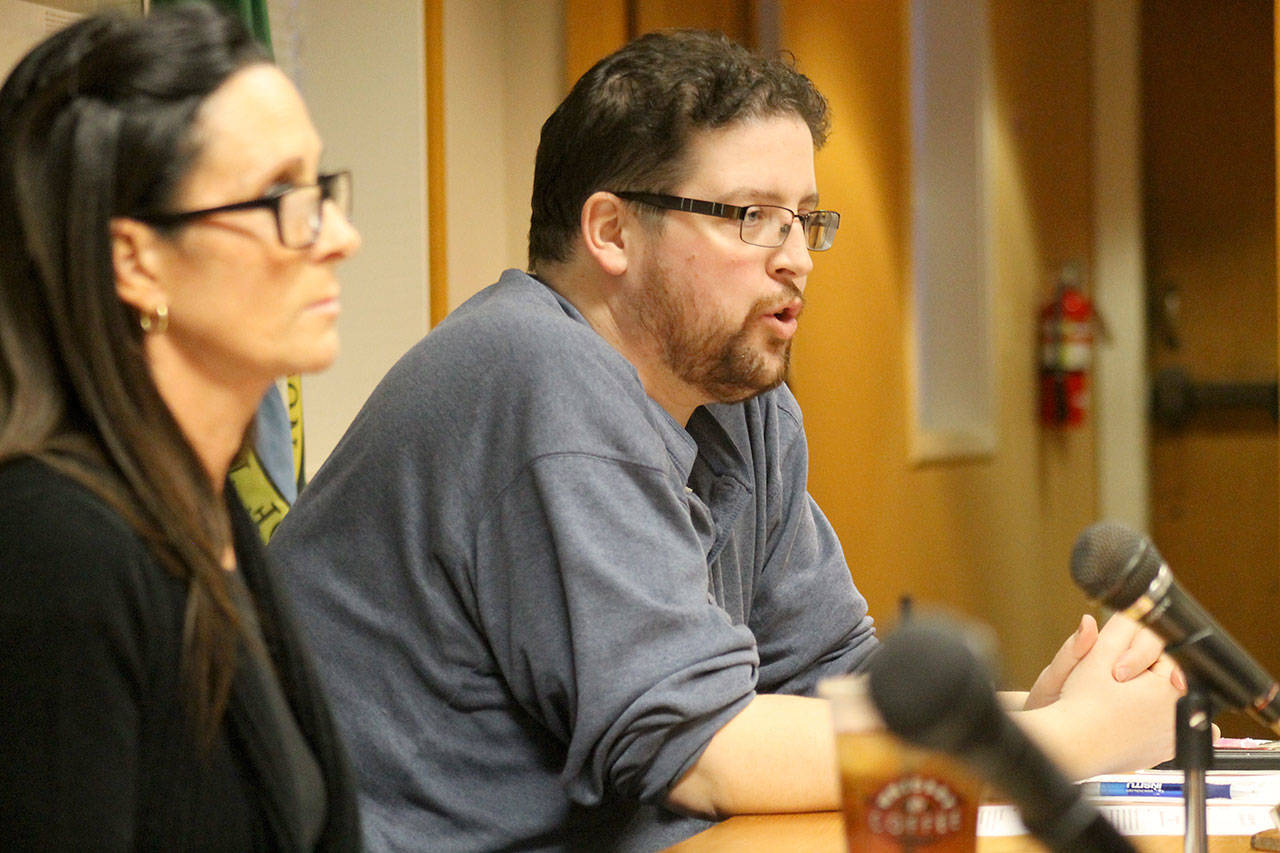There appears to be some progress in Langley with an inclusive city ordinance, though a first reading likely won’t appear on the city council’s agenda until mid-May.
The council briefly discussed the possibility of reviewing the draft ordinance while also getting its first look at the city attorney’s “guidance” regarding several key issues within the inclusive city topic at its regular monthly meeting Monday night.
Because Councilwoman Dominique Emerson will be out of town during the council’s next meeting on May 1, the earliest a first reading could occur is on May 15.
The council received city attorney Kenyon Disend’s guidance just prior to Monday’s meeting and did not delve into the details of the document. The council agreed to discuss it when Emerson returns for the May 15 meeting.
Callison declined to provide The Record with the guidance; the document will remain secret, exempted from disclosure under the attorney-client privilege statute of RCW. 5.60.060.
“The opinion from the city attorney is privileged and we have not waived privilege,” Callison wrote in an email Tuesday. “We may decide to waive it after council (sic) has had a chance to discuss it at their May 15th meeting.”
The city attorney’s guidance was requested by the council. Kenyon Disend examined several topics, including whether the ordinance conflicts with existing city code and the police guild’s contract, while also clarifying potential penalties for city workers who don’t comply with the ordinance.
Councilwoman Dominique Emerson said Friday morning that she plans to ask the council to make it public at the May 15 meeting.
“I feel everything should be open to the public,” Emerson said. “If I could, I’d have all the emails be published publicly all the time because then there would be never any public records requests.”
Councilman Thomas Gill said he would vote to approve the document’s release to the public, while Shoudy said she would have to “hear how other council members feel about it.” Councilwoman Rene Neff declined to comment while Councilman Bruce Allen could not be reached by press time Friday afternoon.
Toby Nixon, president of the Washington Coalition for Open Government and Kirkland City Councilman, said it is not uncommon for agencies to not provide legal opinions from city attorneys. He said that while legal opinions are typically held from the public when it applies to litigation, the Washington State Supreme Court’s interpretation of RCW 5.60.060 has become “very broad.”
“An agency can choose to release advice from an attorney, but they don’t have to,” Nixon said.
The potential first reading of the inclusive city ordinance is a continuation of a months-long discussion that began in November 2016. The ordinance, which was crafted by Kenyon Disend in March, contains language which restricts city funds from being used to enforce federal immigration laws and instructs police not to detain individuals solely based on the violation of immigration laws. The city council also approved a non-binding resolution at a March 20 meeting declaring Langley an inclusive city. One of the resolution’s 18 clauses includes a statement that police will continue not inquiring about a person’s immigration status or religion.
Asked where she stands on the draft ordinance, Emerson said she is “100 percent in favor of it.”
“I think it’s a very important thing to have,” Emerson said. “I think it comes down to assuring people that Langley stands behind its policies. The business with the oath of office violations seems to be pretty perfunctory.”
Gill said he would vote to table the ordinance and keep it in the council’s “back pocket.” He also said that while the resolution does not include a clause that prohibits the use of city funds for the enforcement of federal immigration laws, it’s something that the city council can add.
“At this point, we are where we need to be,” Gill said. “I think if we pass an ordinance, all we would do is raise a flag that makes a target for someone who wants to make life difficult for us.”
Shoudy said she believes in representing the constituents who voted her in and that many of them are against it. While she is not opposed to Langley adopting an inclusive city ordinance, she will not make an official decision for or against it until she’s at the meeting.
“I’m sympathetic and I want to respect people, but however, I know it’s my job to represent the people that voted me in,” Shoudy said.



